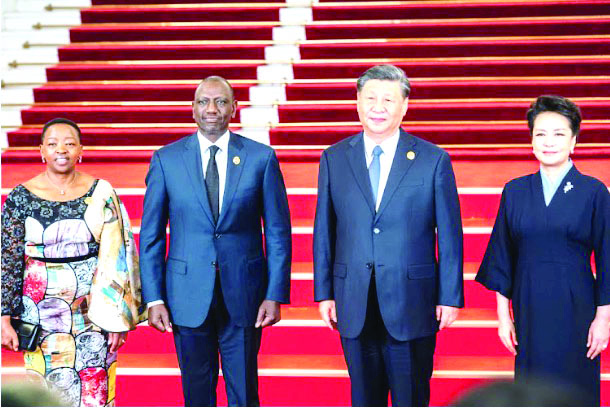Lessons for regional integration from the SCO
By Stephen.Ndegwa, November 9, 2023The 22nd Meeting of the Council of Heads of Government of Member States of the Shanghai Cooperation Organisation (SCO) was held in late October in Bishkek, Kyrgyzstan.
Objective of the Meeting was to follow up on and deliver outcomes of the Meeting of the Council of Heads of State held in July.
Twenty-two years ago, SCO was founded in response to the shared aspiration of regional countries for promoting friendship, safeguarding security and pursuing development. Today, the organisation has grown from the original “Shanghai Five” to nine member states, three observer states, and 14 dialogue partners.
SCO member states now account for nearly half of the world’s population and about one quarter of the global GDP. The SCO came together in the firm belief that regional affairs should be discussed and managed together by countries in the region, free from disturbance, meddling and manipulation of non-regional countries. Such a belief is also reflected in our accommodation toward each other and our autonomy as a whole.
In today’s turbulent and changing world, it is all the more necessary that we review the founding mission of SCO. Only when groups remain true to the founding mission and uphold solidarity and coordination can they safeguard peace and tranquility, boost development and prosperity in the region.
Since its inception, SCO has brought together countries at different development stages and with diverse cultural traditions, and gathered a powerful force for solidarity, cooperation and development.
In this process, it has made important explorations in both theories and practice for building a new type of international relations and a community with a shared future for mankind.
At the 2022 SCO Samarkand Summit, Chinese President Xi Jinping made a summary of SCO’s experience and stressed the importance of upholding political trust, win-win cooperation, equality between nations, openness and inclusiveness, and equity and justice.
Thirdly, is turning theories into practice, and turning SCO blueprint into a real-life picture. The first step is to act on the vision of a community with a shared future for mankind, and ensuring solid progress of cooperation in all areas of development, security and civilisation. The second is about attitude, that is to work toward the same goal and contribute to each other’s success.
In light of the current international situation and realities of regional countries, groups like SCO need to work together to strengthen the shield of regional security. They need to resist external interference and oppose camp-based confrontation.
We need to improve mechanisms for tackling security threats and challenges as quickly as possible, and crack down on the forces of terrorism, separatism and extremism and transnational organised crimes. Second, we need to work together to speed up economic recovery.
We need to jointly develop safe and efficient transportation systems, promote trade and investment liberalisation and facilitation, and keep industrial and supply chains stable and smooth.
The SCO is working together to advance Belt and Road Cooperation. The Third Belt and Road Forum for International Cooperation held in Beijing in mid-October was attended by representatives from 151 countries and 41 international organisations, underscoring the great appeal and global influence of the Belt and Road Initiative (BRI).
Over the past decade, BRI has delivered concrete benefits to the world. It has become the most popular global public good and largest international cooperation platform in our world. Plans are underway to establish an SCO development bank to meet the financing and development needs of member states.
Fourth, SCO is cooperating to promote mutual understanding and amity between its members. This involved continuously deepening cooperation in such areas as education, culture, tourism and sports, and ensuring the success of signature programs such as the SCO Forum on People-to-People Friendship.
— The writer is a PhD candidate in International Relations.
